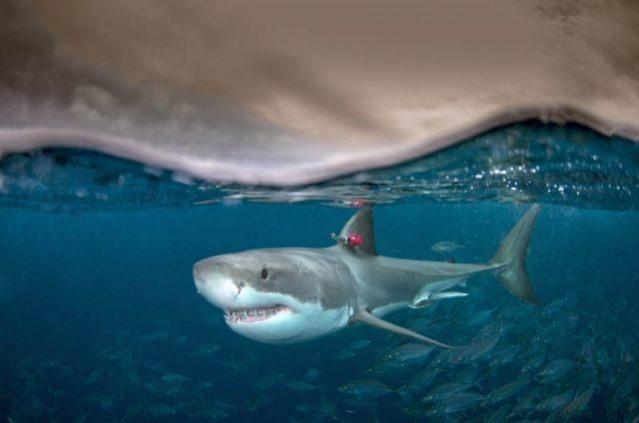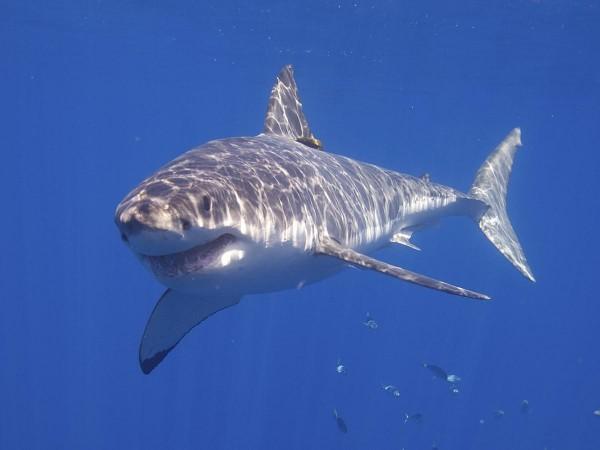When it comes to the ocean, the great white sharks are hands down the best killing machines in it. With an evolutionary design that is built for high-performance movement, these sharks can outmaneuver any prey. Interestingly, they are one of the very few warm-blooded fishes in the world. Now, scientists have found the temperature regulatory mechanism within these fishes helps them swim faster.
According to the study by an international team of researchers, warm-blooded (endothermic) fishes such as the great white shark (Carcharodon carcharias) and the swift bluefin tuna (Thunnus thynnus)—that are capable of regulating their own body temperatures—are endowed with speed due to the regulatory process. However, they do not span across areas broader range of temperatures. The study provides among the first direct evidence of the evolutionary advantage serving another purpose.
"The faster swimming speeds of the warm-blooded fishes likely gives them competitive advantages when it comes to things like predation and migration. With predation in mind, the hunting abilities of the white shark and bluefin tuna help paint a picture of why this ability might offer a competitive advantage," said Dr. Nicholas Payne, co-author of the study, in a statement.
Hotter than Others

Over the course of years, researchers have gleaned that not all species of fish are cold-blooded (ectothermic). Some have acquired evolutionary capacities to warm their bodies in order to remain warmer than the temperatures of the water surrounding them. However, the kind of advantages that this adaptation has conferred on these fishes has remained uncertain.
"Some believed being warm-blooded allowed them to swim faster, as warmer muscles tend to be more powerful, while others believed it allowed them to live in a broader range of temperatures and therefore be more resilient to the effects of ocean warming as a result of climate change," explained Lucy Harding, first author of the study.
Therefore, the team explored these two potential scenarios. The authors utilized existing datasets and acquired data from bony fish and wild sharks. They attached bio-logging devices to the fins of the animals they captured. Using this, the scientists collected information such as the temperatures of the water that the fish came across, the depths of the waters they swam in, and the speeds at which the fish swam for a major part of the day.
Faster than the Rest

The authors found that in comparison to cold-blooded fishes, warm-blooded fishes swim approximately 1.6 times faster. However, they did not live across broader temperature ranges. According to the study, regionally endothermic fishes had the capacity to preserve metabolically acquired heat via vascular countercurrent heat exchangers and increase the temperature of internal tissues, which resulted in increased speed.
Additionally, the study also stated that as speed is a crucial factor on the metabolic rate of fishes, the findings imply that warm-blooded fishes have lower energy requirements than existing estimates.
"Additionally, and contrary to some previous studies and opinions, our work shows these animals do not live in broader temperature ranges, which implies that they may be equally at risk from the negative impacts of ocean warming. Findings like these —while interesting on their own—are very important as they can aid future conservation efforts for these threatened animals," concluded Dr. Payne.
















